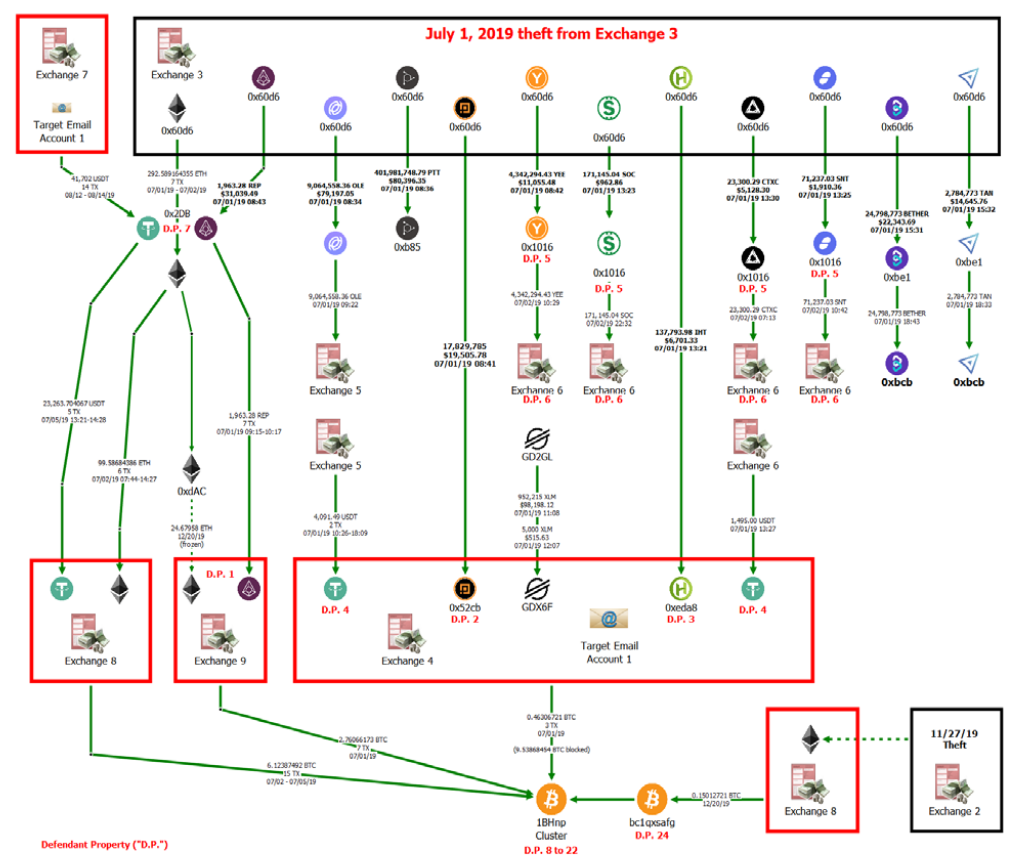Are bitcoins anonymous?

The real question of Bitcoin anonymity centres around the transaction rather than the existence of Bitcoins themselves. In other words, if you own and use Bitcoins, can you be identified by a transaction you’ve made?
Each Bitcoin transaction is stored in a public log called the blockchain and anyone can see the flow of Bitcoins from one place to another. But those transactions are between wallets (which have an ID number) and not between people. So this publicly available information cannot be used to identify the sender or receiver of Bitcoins because the wallet IDs or addresses are just a random set of numbers and letters with no way of linking an individual to a particular wallet.
So, Bitcoin transactions are also anonymous. Nobody knows who has paid whom.
However, before you go charging off thinking that you can buy or sell anything without your partner, the police or the tax authorities knowing, you must take into consideration ways in which you may inadvertently tie transactions to your identity.
If any of the addresses in a transaction’s log can be tied to an individual, via network analysis, a form of surveillance or some other form of slip up, then it might be possible to work out or guess who might own the other addresses.
See also: Buying Bitcoins Anonymously
How might an anonymity slip-up occur?
User A wants to send User B some Bitcoins for the purchase of a piece of art. User A then logs on to their computer, creates the transaction and sends bitcoins over to User B’s wallet. But A is new to cryptocurrencies and doesn’t really trust what has happened, so prints out a copy of the transaction before logging off.
Roll forward a few years and User A receives a visit from the tax authorities. User A doesn’t have anything to hide and so hands over all of the paperwork in their possession. This now links User A to the Bitcoin transaction for the piece of art. The tax authorities still don’t know that User B has received Bitcoins in exchange for the piece of art. However, they do know that A has bought art from B on many occasions in the past using regular dollars to pay for them. So it’s a reasonable guess that B could be the recipient of the Bitcoins that they have failed to declare on their tax returns.
Some people, be it authorities or scammers, can set up traps to uncover the owners of Bitcoins. Say Bitcoin User C buys coins from a ‘dodgy’ exchange, then those coins are linked to the person who will have used a credit card or bank transfer to buy those coins. The same dodgy people then run a trap site where they sell User C some illicit drugs. In this case, whoever is behind the exchange and trap-site can prove that it was C who made the transaction.
The majority of users view this identification of individuals in a transaction as an attack on the whole Bitcoin network and an infringement of civil liberties.
Cash and other Cryptos
As you can see, Bitcoin’s privacy is a far cry from the anonymity of cash. With cash, nobody would know that a transaction took place without actually being there, and nobody would know how much money a person has without opening their wallet. Due to the public nature of the blockchain on which Bitcoin is built, staying anonymous is much harder than merely buying Bitcoin and calling it a day. In fact, law enforcement regularly tracks down Bitcoin stolen by cyber criminals in hacks, such as this one.

Image: US DOJ, court documents
There are other cryptocurrencies, other than Bitcoin, that have tried to address this issue. “Privacy coins” like Monero and Zcash have certain privacy features built into their blockchains that can obscure how much money an address has, which address sent money to which address in a transaction, how much was sent, etc. But they are far less popular, or even known of, than Bitcoin. Thankfully, there are still measures that one can take to achieve an enhanced level of privacy on Bitcoin. And the Bitcoin protocol itself has also gradually evolved some privacy protections since its inception.

